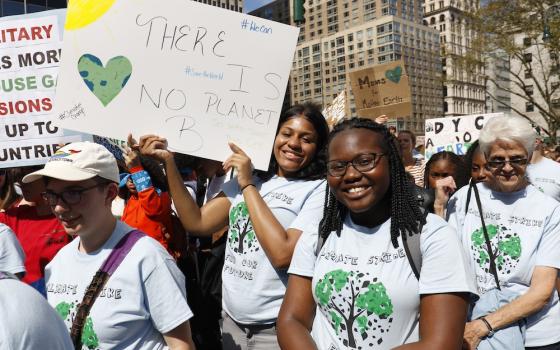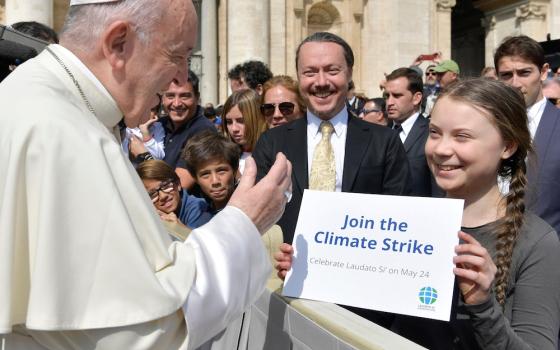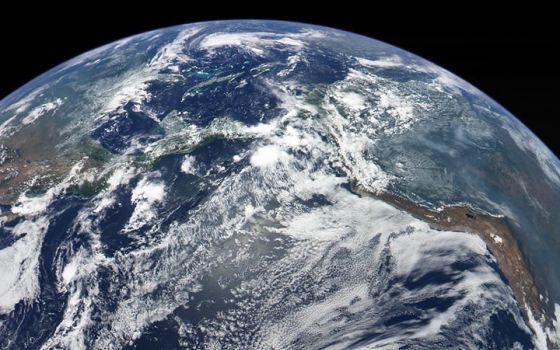
(Bill Oxford/Unsplash)
Editor's note: In his Lenten "Reflections on the Care of Creation," Fr. Emmet Farrell examines our impact on the planet and our responsibility, as people of faith, for our common home. You can sign up here to receive Fr. Farrell's reflections in your inbox every Monday, Wednesday and Friday from Feb. 17 to April 2, and you can view the entire series here.
See:
When people ask Katharine Hayhoe if she believes in global warming, the climate scientist, who is very open about her evangelical Christian faith, says, "No." That's because it's not a religion, she says — it's a fact. And she cares about it because of her faith. Hayhoe finds that her response reframes the conversation, making it easier to enter into dialogue with a climate change skeptic.
"Perhaps one of the greatest reasons for resistance is that the reality of climate change demands that we change," writes Nancy Sylvester in Global Sisters Report. "To change the lifestyle to which we have become accustomed. To stop our dependence on fossil fuels, which in turn decreases the profits and the power of all the related industries and corporations. To alter change our habits of consumption and disposal. To transform how we view the role of the human in the enterprise we call life."
She adds, "We must acknowledge that we are in service to the future generations of all species and to the planet. These realizations do not come from data alone."
We must recognize that what happens to our atmosphere happens to each of us, and to every other living being on the planet. And because climate skepticism is increasingly entangled with politics, it is important to talk about this with others.
"Doubts about the science are being replaced by doubts about the motives of scientists and their political supporters. Once this kind of cynicism takes hold, is there any hope for the truth?" asks The Guardian.
Advertisement
Judge:
There can be no renewal of our relationship with nature without a renewal of humanity itself. There can be no ecology without an adequate anthropology. (Laudato Si', 118)
The fact is that 'contemporary man has not been trained to use power well,' because our immense technological development has not been accompanied by a development in human responsibility, values and conscience. (Laudato Si', 105)
As for the lack of action … it is explainable only by the fact that there are vested interests, political interests, who lobby against environmental action. Second, there is an ideological predisposition against regulation. The third, simple inertia. But the first cannot be dismissed, and there are oil and gas interests who have a reason not to want to take action on climate change. … They have a cause which I don't believe is in the interest of God, or in the interest of man. (The Rev. Richard Cizik)
Act:
- Look up someone you know who is skeptical about climate change and listen to his or her reasons and fears. Look for possible ways to engage in dialogue with the person.
- Invite a science teacher or professor to explain what science has documented about climate change.
- Visit another church, synagogue or mosque in your area to learn about their work on climate issues.







